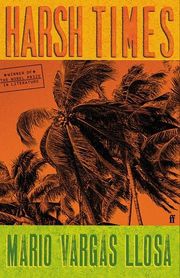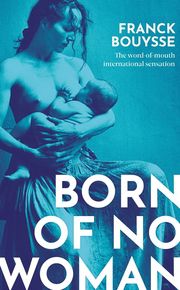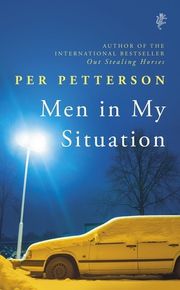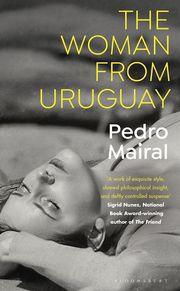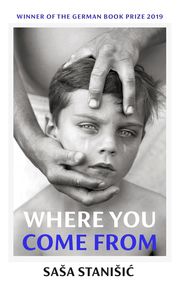November brings another dazzling body of works in translation. Below are six highlights from our collection of recently translated novels, but know there’s still many excellent titles publishing later in the month – including the latest work from The Shadow of the Wind author Carlos Ruiz Zafon, City of Mist.
Harsh Times by Mario Vargas Llosa (translated by Adrian Nathan)
Guatemala, 1954. A CIA-supported military coup topples the government. Behind this violent act is a lie passed off as truth, which forever changed the development of Latin America: that those in power encouraged the spread of Soviet communism in the Americas. Mario Vargas Llosa has written a drama on a world stage, in which some persecutors end up as victims of the very plot they helped construct.
Ironic and sensual, provocative and redemptive, this is a story of international conspiracies and conflicting interests in the time of the Cold War, the echoes of which are still felt today.
Shoko’s Smile by Choi Eunyoung (translated by Sung Ryu)
In crisp, unembellished prose, Choi Eunyoung paints intimate portraits of the lives of young women in South Korea, balancing the personal with the political.
In the title story, a fraught friendship between an exchange student and her host sister follows them from adolescence to adulthood. In ‘A Song from Afar’, a young woman grapples with the death of her lover, travelling to Russia to search for information about the deceased. In ‘Secret’, the parents of a teacher killed in the Sewol ferry sinking hide the news of her death from her grandmother.
Born of No Woman by Franck Bouysse (translated by Lara Vergnaud)
Nineteenth-century rural France. Before he is called to bless the body of a woman at the nearby asylum, Father Gabriel receives a strange, troubling confession: hidden under the woman’s dress he will find the notebooks in which she confided the abuses she suffered and the twisted motivations behind them. And so Rose’s terrible story comes to light: sold as a teenage girl to a rich man, hidden away in an old manor house deep in the woods and caught in a perverse web, manipulated by those society considers her betters.
A girl whose only escape is to capture her life - in all its devastation and hope - in the pages of her diary…
Men in My Situation by Per Petterson (translated by Ingvild Burkey)
In 1992 Arvid Jansen is thirty-eight and divorced. Turid has left with their three girls, slipping into her young, exuberant crowd of friends - the colourful - and a new house with no trace of their previous life together. More than a year has passed since the tragic accident that took his parents and two of his brothers. Existence has become a question of holding on to a few firm things. At some point, the girls decide against weekend visits with their dad. Arvid suspects that his eldest daughter, Vigdis, sees what kind of a man he really is.
Is there any redemption for a man in his situation? When Arvid has lost or been left by all those dear to him and feels his life unravelling, perhaps there is still a way forward.
The Woman from Uruguay by Pedro Mairal (translated by Jennifer Croft)
Lucas Pereyra, an unemployed writer in his forties, embarks on a day trip from Buenos Aires to Montevideo to pick up fifteen thousand dollars in cash. An advance due to him on his upcoming novel, the small fortune might mean the solution to his problems, most importantly the tension he has with his wife.
While she spends her days at work and her nights out on the town - with a lover, perhaps, he doesn’t know for sure - Lucas is stuck at home all day staring at the blank page, caring for his son Maiko and fantasizing about the one thing that keeps him going: the woman from Uruguay whom he met at a conference and has been longing to see ever since.
Where You Come From by Sasa Stanisic (translated by Damion Searls)
Sasa Stanisic’s Where You Come From is a novel about a village where only thirteen people remain, a country that no longer exists, a shattered family that is his own.
Blending autofiction, fable, and choose-your-own-adventure, Stanisic explores a family’s escape during the conflict in Yugoslavia, and the years that followed as they built a life in Germany. He examines what it means to learn a new language, to find new friends and new jobs, to build an identity between countries and cultures.


